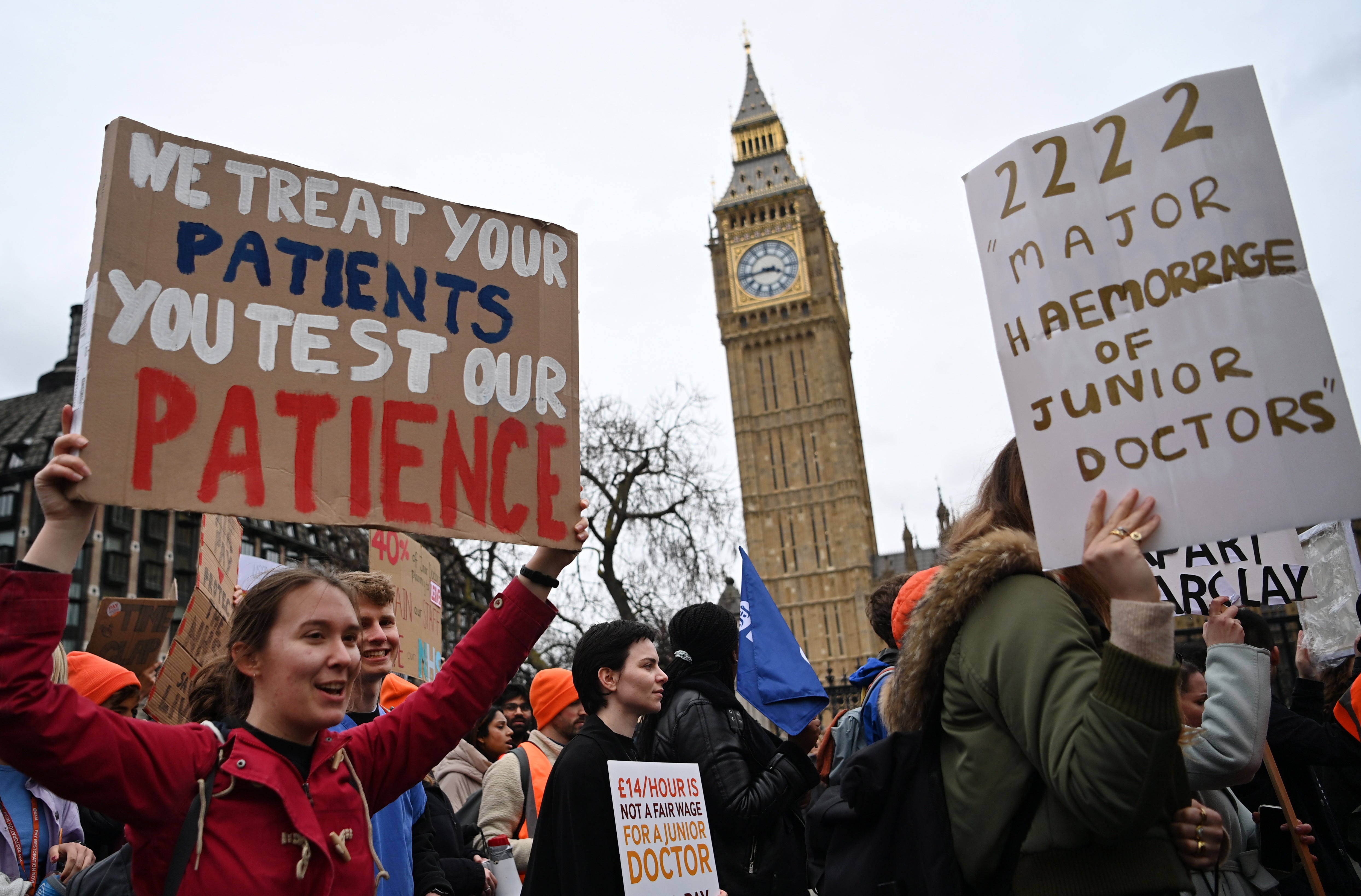The British Medical Association (BMA), not usually associated with tactical expertise in industrial action, seems to have learned a few lessons from that ninja warrior of the strike weapon, Mick Lynch.
Aside from his fluid and sharp-witted media performances, the secretary general of the RMT union was highly skilled at targeting a one- or two-day strike to inflict maximum damage on railway timetables, and thus maximising their effect.
The junior doctors’ four-day action is similarly aimed at making the most dramatic impact, coming as it does during the Easter holidays, when many NHS staff will be on holiday. Hospitals and clinics have hardly recovered from the last wave of strikes, and the NHS is even further behind in dealing with the post-pandemic backlog of cases.
Unlike the RMT action, however, which was mainly a matter of serious inconvenience to the travelling public, the doctors’ strike is a matter concerning people’s health, and the relief of pain and worry now postponed.
When it is said that “routine” or “elective” treatments are having to be postponed it has an almost benign ring to it. Of course it is nothing of the sort, because so many patients have already waited months – if not years – to be treated, and their conditions can be extremely serious, and will worsen if they can’t be attended to.
Some, fortunate to have the means, will turn to private treatment through desperation, thus undermining the principles of adequate universal care free at the point of use. As we report, the strikes will lead to caesarean births being cancelled, an increase in the number of mental health patients detained, and problems transferring the critically ill for urgent care.
The doctors know this, better than most, and they seek only the best for their patients. Their argument has merit. Their pay has fallen badly behind inflation, albeit that has been a widespread phenomenon in recent years. They are right to point to pressures of work that have caused stress and anxiety. Morale is low. They are being pushed into strike action, on a democratic ballot, because they feel they have no alternative.
It is also worth asking whether it makes much sense for the taxpayer to fund local periods of medical training, only to see that investment – an enthusiastic and dedicated junior physician – spend a few years trying to make ends meet and retain their sanity in the NHS before deciding to work abroad or leave the profession. As with nursing and social care, retention and motivation are real problems in the NHS.
That said, the doctors were unwise to hit the NHS with such a heavy blow at such a time. The public has admiration and sympathy for their health professionals, but patience is not unlimited. A more gradual escalation of action would have been preferable, at least in terms of retaining public support.
In that context, it is also regrettable that the BMA didn’t offer NHS management more “derogations” for accident and emergency services, beyond a mass casualty clause and their basic legal obligations.
The BMA’s demand for a 35 per cent “restoration” no doubt reflects the erosion in the purchasing power of their salaries; but to many onlookers it seems an other-worldly figure. Like the nurses’ initial demand of around 19 per cent, no one seriously expects a settlement at such a level. There is always much to be said for aiming high, but not launching a pay demand into the stratosphere.
As with the other strikes that have disrupted public services, sooner or later there will have to be a settlement, and compromise is inevitable. The health secretary, Steve Barclay, should do as he did before with the nurses and offer talks with the BMA, and with a realistic initial offer.
He might also usefully widen the discussion out to the often unhealthily long hours trainee doctors work, and open up the possibility of restricting career earnings, adjusting pay upwards in the early years but with salaries plateauing earlier.
There are many urgent and fruitful areas for NHS managers, ministers and doctors to discuss some prospect of the kind of deal reached with nursing staff.
The conciliation service Acas might be able to offer a bridge into direct talks if any of the parties feel uncomfortable about making the first move. All sides, though, need to scale back the threat to patient health, without delay.







Join our commenting forum
Join thought-provoking conversations, follow other Independent readers and see their replies
Comments